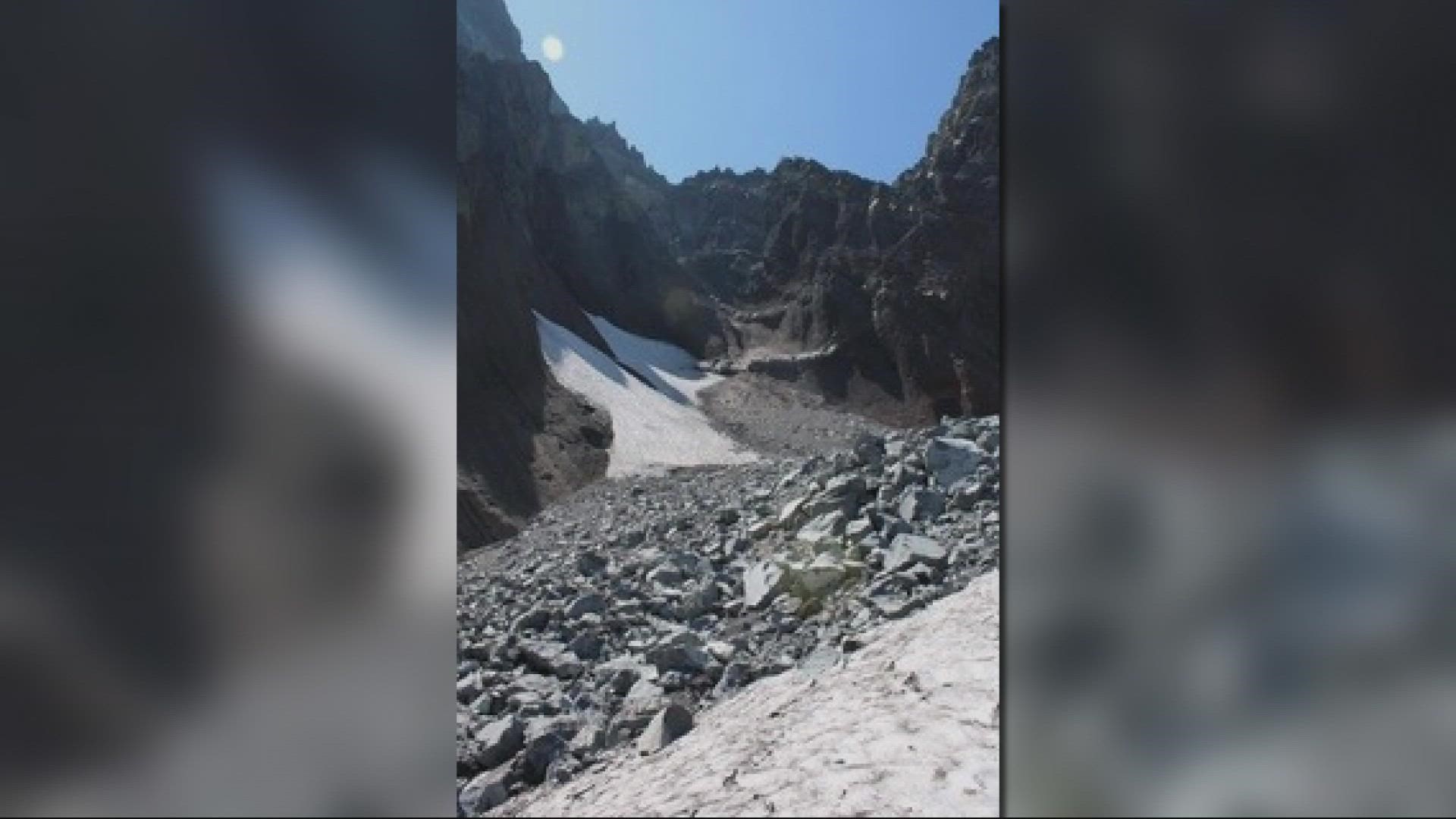In a shock to researchers, the Lathrop Glacier, a glacier in Southern Oregon that has been there for as long as anyone can remember, has disappeared. It was Oregon's southernmost glacier, located in the Cascade Range in Douglas County.
"It was documented in 1966," said Anders Carlson, president of the Oregon Glaciers Institute. "It's been then there probably for hundreds, if not thousands, of years."
When Carlson went to check on the glacier in August 2020, it was gone.
"I was shocked by how many glaciers have retreated and disappeared," he said. "And this one was the first one we really saw and were just like, 'Wow, there's nothing here.'"
What was a sheet of ice and snow was just bare bedrock. Carlson said the glacier likely disappeared sometime in the last decade.
A researcher at Portland State University (PSU) said that because of climate change, seeing the Lathrop Glacier disappear, isn't surprising.
"I don't think this is particularly unusual, well, unusual because of climate warming, this is kind of what we expect. The small vulnerable ones, like the Lathrop, are the ones that would go first," said Andrew Fountain, a glacier expert at PSU.
There are about 200 glaciers in Oregon. According to Fountain, they're all about a quarter smaller than they were in the 1980s.
"With continued climate warming — and we're on track to continue warming for the rest of the century — they're going to be losing their area even faster." Fountain said. "In some areas, we expect them to disappear completely."
That includes the glaciers on Mt. Hood.
The shrinking is not just the result of warmer temperatures in the summer but also warmer temperatures in the winter.
It will impact recreation on the mountain and the agriculture below it, which depends on those glaciers.
Researchers say the only way to help minimize glacier melt is to dramatically reduce our greenhouse gas emissions and cool our climate.
"It's pretty simple," Carlson said. "If we just cool down the climate a bit, it doesn't have to be a one-way street if we turn around and reduce our greenhouse gases."
VIDEO PLAYLIST: More KGW stories on climate change

